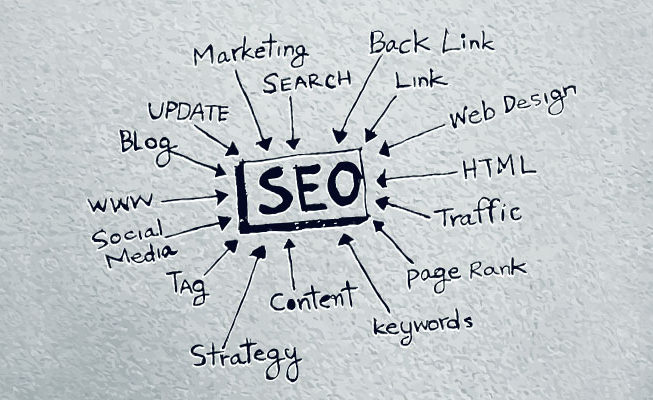SEO Gets Your Site Listed In Google Searches
Search engine optimization (SEO) is an important investment for website owners. SEO uses a combination of methods to increase the number of visitors to a website. Properly done, it produces a high-ranking placement in search engine results pages (SERP). It is multidisciplinary and benefits from good website design, appropriate content, proper coding and audience outreach.
There are two ways to influence search engine algorithms. These relevant keywords fall under two basic areas.
On-page SEO refers to website elements that comprise a webpage such as HTML/CSS/JavaScript, text content (including images), title page, meta description, heading tag and URL/permalink. It’s also helpful to embed structural elements such as H1, H2 and H3 tags in your text. Doing so makes it easy for search engines to better understand how your content is structured and identify what’s most important. On-page SEO also includes technical factors such as how fast your page loads, how long your visitors stay on your site and engage with your content, and how your site appears on mobile devices.
Off-page SEO refers predominantly to activities such as backlinks. Backlinks can come from many sources, including news articles, blog postings, blog commenting and article submissions.

I'd like to share a few simple tips and techniques for working with search engine optimization in articles. Of course most writers will be writing for their audiences anyways and this is the way it should be. But in addition, there is nothing wrong with applying some mild optimization principles to your Web based article content for better exposure and ranking on the search engines. I'd also like to mention that for the best SEO benefits it's often wise to hire a professional search engine optimization firm such as SEO Madbeetech at https://seo.madbeetech.com.
Start by writing for your audience - without concerns about the SEO technical stuff.
By this we are talking about writing something of value that speaks directly to your audience. Highly useful content that engages the reader and will meet their need. Write something that you can feel proud of. Do not stress or worry about search engine optimization tactics while you are in the creative writing phase. Most of the time we do not create our best work, if we are all bogged down about SEO related issues...such as how many times a keyword is being used or what the exact keyword density is. Write your article for the readers first and try and keep it focused on one central topic.
When you are creating an article, understand that often that article is "born" as you write it.
Maybe you are a new writer just getting started. If you are struggling with an idea or feel like you have writers block, it's important to realize that one of the best ways to get started, is to simply begin actually writing and let your article "take shape" as you write it. Fashion your story as you assemble your thoughts onto paper. Writing is something that flows as you practice. Great articles are born as you write them.
Realize that some of your best article writing will be created if you work on it over a period of time.
I believe that often, our thoughts creatively continue as the old expression suggests...as we "sleep on it." This applies especially to creative writing or even just copywriting in general. Try working on two or three different projects at a time and over a period of a few days. Don't be in a big rush to finish something off quickly. But give yourself the liberty to be creative over a period of time.
Once your article is finished, it's time to test it out and see how it will flow to the reader.
One of the smartest tips I learned from Robin Nobles, is to read your finished content out loud. There are errors that will not be picked up by the spell checker. But as you read your work out loud, certain issues will surface and you can make changes to the "delivery of the article" or the "tone of the article" so that it flows much better.